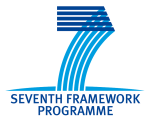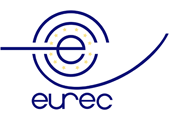menu
- Home
- National Information
- EC-Activities
- EUREC-Activities
- Legislation
- Training Materials
- Literature
- Events
- Newsletter
supported by:

Event details
<-Overview | Previous event in calendar | Next event in calendar
Climate Change and Sustainable Development: Ethical Perspectives on Land Use and Food Production
Date: 05/30/2012 to 06/02/2012
Location:
Theologicum
Liebermeisterstraße 12
72076 Tübingen
Speaker: U.a.: Konrad Ott (D-Greifswald), Mickey Gjerris (DK-Copenhagen), Joyeeta Gupta (NL-Amsterdam), Student Initiatives Greening the University (SIGU, Tübingen) and Food Revitalisation and Eco-gastronomic Society of Hohenheim (FRESH, Stuttgart-Hohenheim)
Further information: http://www.uni-tuebingen.de/einrichtungen/internationales-ze...
Description: Climate change is one of the major framing conditions for a sustainable development of agriculture and food production. This is connected to ongoing changes in and of land-use practices which are related to local, regional and global scales, often dubbed as 'glocal' situations. That characterisation also applies to the closely related land and waters use domains of forestry and fisheries.
In this context, agricultural and food ethics (and adjacent fields) need to address well known, but aggravated 'old' problems. These are, among others, desertification boosted by temperature increase, changing precipitation regimes, unsustainable and/or unfair land-use and water regimes, pressure on arable land due to the loss of coastal areas, soil degradation and suburban sprawl, and the strain placed on both environment and animal welfare as a consequence of a growing worldwide demand for animal products. All these phenomena and their manifold socio-economic implications on justice and fairness need to be investigated and reflected from ethical perspectives.
At the same time, however, climate change creates some specific difficulties: There are and will be new irreversible changes of natural and anthropogenic systems, which are associated with a high degree of uncertainties with regard to their consequences. Furthermore, mitigation and adaptation measures to counter or slow down climate change have already resulted in considerable changes in agri- and silvicultural land-use. This is mainly but not only due to the significant increase in growing plants for energy supply ("biofuels"). Another perspective is the purchase or long-term tenancy of arable land or of water rights in the countries of the global south by wealthy nations and by transnational enterprises. In the case of animal production, specific dilemmas arise when a narrow focus on carbon efficiency favours intensive production systems which are decoupled from many traditional agricultural considerations. And there are the citizens’ perspectives on issues of both governance frameworks as well as lifestyle and consumption patterns with regard to adaptation and mitigation.
These issues are some of the many dimensions which demand reflection from an agricultural and food ethics perspective and thus examination by the community of scholars involved in the European Society for Agricultural and Food Ethics (EurSafe; www.eursafe.org). The 10th EurSafe Congress in Tübingen, Germany, is dedicated to this spectrum of themes around climate change and sustainable development.
The Tübingen conference will follow the well-established successful format of EurSafe meetings with invited plenary speakers and some 70 papers in parallel sessions. These will be documented as short papers in the conference volume which all participants will receive at the beginning of conference. In order to foster and enlarge EurSafe networks, next to the already existing Scandinavian NorSafe committee, a new sub-group of EurSafe members in the German speaking committee is going to have its initial meeting and a workshop with a group of high-ranking visitors from Thailand and India will explore the possibilities of an Asian Pacific network. Furthermore, there are suggestions to introduce new elements like a plenary session designed by students and a movie presentation.
The accompanying social program entails punting on the river Neckar and two receptions, one by the city mayor and the University president respectively, and a surprise cultural program at the conference dinner. Please note the Early Bird Registration until 1. April 2012:
http://www.izew.uni-tuebingen.de/aktuelles/veranstaltungen/eursafe-2012/payment.html
Contact:
PD Dr. Thomas Potthast, Simon Meisch
Phone: ++49 (0) 70 71/29-0
Fax: ++49 (0) 70 71/29-59 90
eursafe2012@izew.uni-tuebingen.de
http://www.eursafe.org/
Organizer: European Society for Agricultural and Food Ethics (EurSafe)
Program coordination: Matthias Kaiser (President of EurSafe; University of Bergen – Norway), ; Thomas Potthast (Director of the EurSafe 2012 Congress Organising Committee; International Centre for Ethics in the Science and Humanities (IZEW), Tübingen University – Germany);
Keywords: Biodiversität; biotechnology; research ethics; research ethics committees; research law; genetic research/technology; health system; green genetic technology; Lebensmittel; ecological ethics
<-Overview | Previous event in calendar | Next event in calendar
